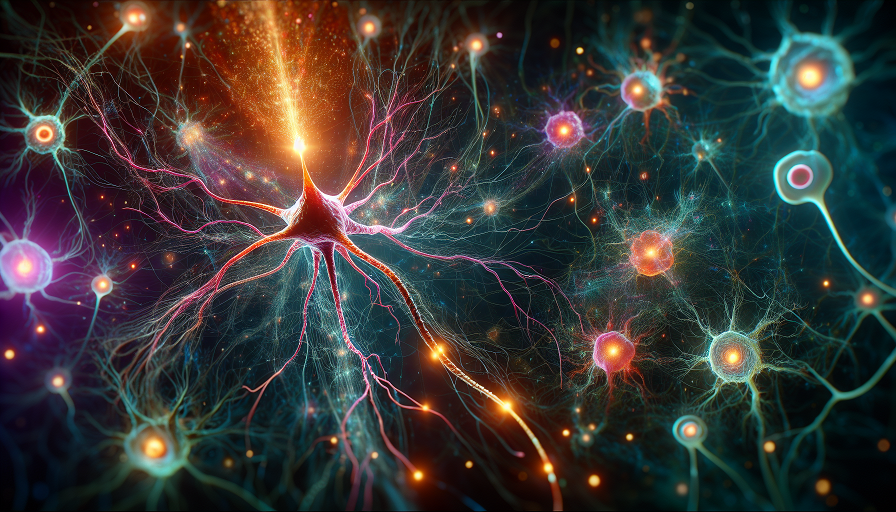
In today’s digital world, spending hours on screens is almost inevitable. Whether it’s for work, education, or entertainment, we find ourselves glued to our devices for about seven hours a day. While screens offer countless benefits, they can also have significant impacts on our brain function. Understanding these effects is key to maintaining a healthy brain in our tech-drenched era.
Contents
The Rise of the 7-Hour Screen Day
With the advancement of technology, our usage of digital devices has skyrocketed. People around the world are spending an average of seven hours per day on screens. This includes activities such as working on a computer, browsing social media, streaming videos, or gaming. It’s easy to overlook the amount of time we spend on screens because they are so seamlessly integrated into every aspect of our daily lives.
Why Are We Spending So Much Time on Screens?
- Work and School: Many jobs and educational programs require the use of computers and other digital devices, contributing significantly to our daily screen time.
- Entertainment: From Netflix to YouTube and online gaming, screens offer endless entertainment options that are easily accessible.
- Socializing: Social media platforms have become a primary way to connect with others, leading people to spend hours scrolling through feeds.
- Convenience: Shopping, reading, and managing daily tasks are conveniences that keep us engaged with screens.
Understanding the Brain’s Response to Screens
The human brain is remarkably adaptable, yet prolonged exposure to screens can change the way it functions. Here’s how screen time affects our brain:
Impact on Focus and Attention
Constant exposure to screens might affect your ability to focus and pay attention. The rapid switches between tasks when you check notifications or flip through apps can lead to a phenomenon known as “attention residue.” This means that part of your attention is left on the previous task, making it harder to concentrate on the new one.
Influence on Sleep Patterns
Screen time just before bed can disrupt our sleep. The blue light emitted by screens tricks our brains into thinking it’s daylight, which suppresses the production of melatonin, a sleep-inducing hormone, leading to poor sleep quality.
The Connection with Mood and Mental Health
Excessive screen time has been linked to mood changes, such as increased feelings of anxiety and depression. Constant comparisons on social media, cyberbullying, and information overload can contribute to these negative feelings.
Tips for Healthy Screen Time Management
It’s unrealistic to expect people to eliminate screen time completely, but there are ways to use screens more mindfully. Here are some strategies:
Set Boundaries
Establish specific times during the day when you use screens and allocate “tech-free” times to allow your brain and eyes to rest. For example, you could implement a rule of no screens an hour before bed.
Practice the 20-20-20 Rule
Every 20 minutes, take a 20-second break and look at something 20 feet away. This simple habit can help reduce eye strain and mental fatigue.
Create a Productive Environment
When working or studying, minimize distractions by using apps that block social media, pop-ups, and notifications. This helps in maintaining focus and avoiding unnecessary screen time.
Engage in Offline Activities
Balance your screen time by engaging in offline activities. Reading a book, going for a walk, or practicing a hobby that does not involve screens can provide a refreshing break for your brain.
The Role of Nootropics
In search of boosting brain function, some people turn to brain supplements known as nootropics. These supplements are designed to enhance cognitive abilities, including focus, memory, and creativity. While nootropics can be beneficial, it’s essential to consult a healthcare professional before adding them to your routine. Understand that they are not a replacement for healthy screen habits, but rather a part of a holistic approach to brain health.
Collaborative Efforts Towards Awareness
Raising awareness about the impact of excessive screen time requires a collective effort. Educational institutions, workplaces, and families can all play a pivotal role in disseminating information about healthy screen practices. Workshops, seminars, and campaigns geared toward screen education can help individuals of all ages understand and take control of their digital consumption patterns.
Parental Guidance and Familial Influence
Parents and guardians have a significant influence on their children’s screen habits. By modeling positive screen behaviors and setting clear guidelines about device usage, families can cultivate an environment that prioritizes real-world interactions and activities. Establishing screen-free zones and times at home—such as during meals or family gatherings—creates opportunities for interpersonal connection and engagement.
Emerging Technological Solutions
As awareness of screen time’s impact grows, technological solutions designed to mitigate its negative effects continue to emerge. Developers are creating apps and gadgets that encourage mindful use of devices. For instance, apps that monitor screen time can provide insights into usage patterns, while features like night mode or digital wellness dashboards on smartphones aim to reduce digital strain.
Adaptive Technologies
Innovation is also driving the development of more adaptive technologies that work in harmony with our natural rhythms. Future iterations of screens may incorporate features that adjust brightness and color temperatures based on the time of day, reducing eye strain and mimicking natural light conditions. Such advancements can significantly improve user comfort and reduce the adverse effects associated with prolonged device usage.
The Future of Screen Time
As technology continues to evolve, it’s likely that our screen usage will increase. However, being aware of the impact that prolonged screen time has on the brain can motivate us to manage it better. Future innovations in technology may also provide more screen time solutions, like reduced blue light screens and apps that encourage breaks.
Spending seven hours a day on screens doesn’t have to equate to a decline in brain health. By implementing these strategies and staying aware of how screens affect your mind, you can enjoy the best of what technology has to offer without sacrificing your brain function.

